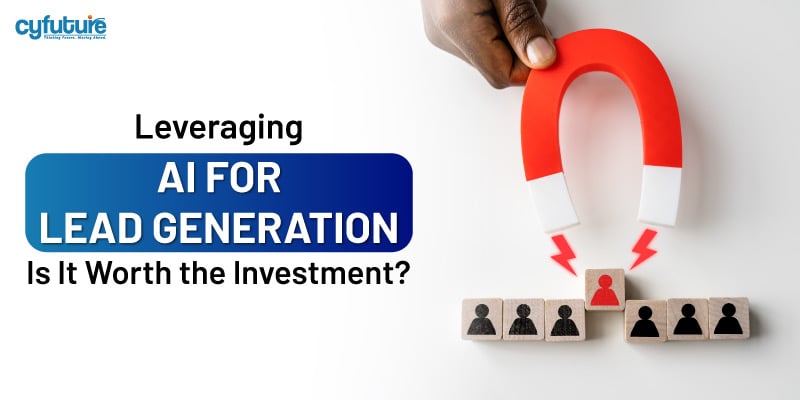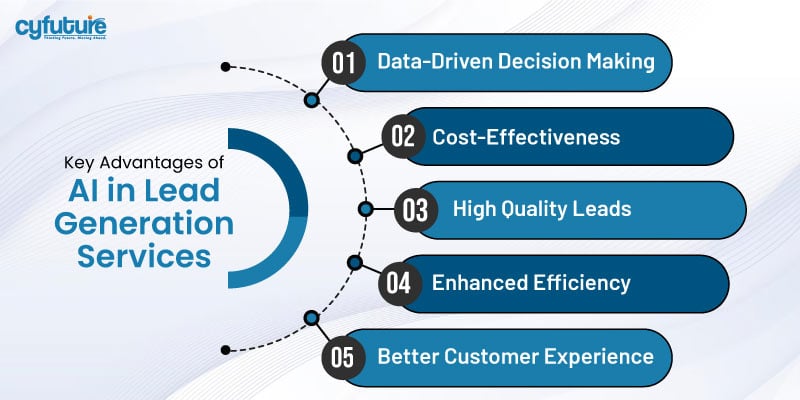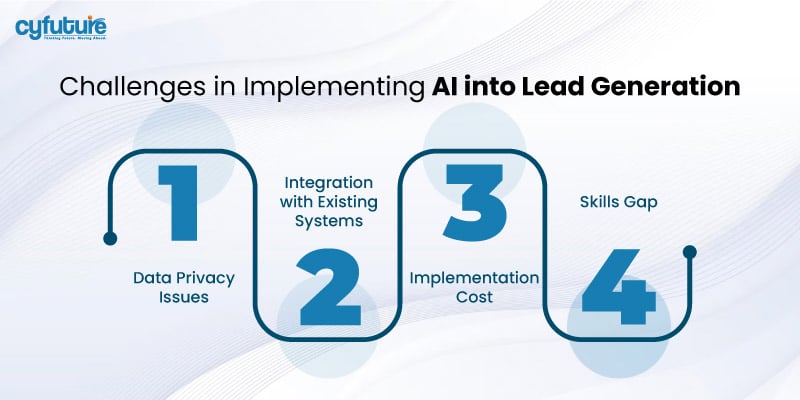-
Get Cloud GPU Server - Register Now!
Toggle navigation

The development of artificial intelligence over the last decade, particularly over the previous years, is meteoric, with exponential growth and rollout of generative AI.
Though the idea is a couple of decades old. But, in recent years, we have witnessed a boom in AI-based systems, solutions, and revolutionary technologies, changing entire industries and our societies. Besides, the modern business world finds no industry or sector from which AI-based systems are unaffected.
In fact, artificial intelligence has penetrated all industries nowadays. And currently, businesses reach better results with fewer investments in terms of time and cost.
Marketing and sales are the wealthiest fields in terms of AI-based tools and methods for everything from prospecting and data analysis to content ideation, strategizing, and even conversion processes.
However, a question always echoes in any marketer or business owner’s mind: Is it worth investing in AI-powered lead generation? Since businesses are pressed hard by tight budgets and demands for measurable results, it becomes essential to understand the real value AI can bring to lead generation.
In this blog piece, we will discuss how AI can change the lead generation strategy and analyze the benefits and drawbacks of using AI. Additionally, we will guide you in deciding if this investment makes sense for your business and allow you to choose better how it can improve your services for lead generation.
However, let’s look at a few stats and data before delving deep.

Now, let’s delve into the deep knowledge pool!
Lead generation has always been a cornerstone of marketing strategies. Traditionally, this meant a mix of outreach, cold calling, and a little luck. But all that changed with the outbreak of AI because, nowadays, companies can automate and optimize lead generation.
Lead generation services cover all kinds of ways and methods to attract prospects and convert them into potential customers. It includes everything from content marketing and social networking to email campaigns and search engine optimization.
Its purpose would be to catch clients’ interest so that by nurturing them to the point where they make a purchasing decision, it’s possible to guide a prospect into becoming a potential client.
AI enhances such services by allowing algorithms and data analytics that help determine the probability of potential high leads, predict customer behavior, and personalize the interaction. Through AI’s assistance, businesses can understand their targeted audience, make the best use of their outreach activities, and get converted into more people.

Investing in AI for lead generation service has many attractive benefits if it is enforced to improve business marketing strategy.
Let’s take some of the most important ones:
It saves repetitional work on data entry and initial outreach, allowing marketing teams to be busy with other strategic activities. This increased efficiency can positively boost productivity and diminish the time it takes to make conversions.
Even though the initial investment for an AI technology may be spectacularly expensive, the long-run cost savings might be significant. For example, if there were the automation of leads generation processes, the companies would save much time in manual doing, minimize the occurrence of errors that may have been committed, and, therefore, have low operational costs.
By using AI for analysis, lead quality could be enhanced by targeting more accurately and offering customization. This increases the conversion rate much more while increasing the satisfaction and retention of customers.
AI provides actionable data analysis insights so businesses can make accurate decisions regarding their lead-generation strategies. The data-driven nature helps the organization adapt promptly to new market conditions and customer preferences.
AI-based personalization brings a more engaging customer experience. Relevancy of content and accurate time for interaction lead to a business building better relationships with leads, resulting in high conversion levels.
AI technologies like machine learning and natural language processing enable businesses to analyze large volumes of data that derive actionable insights. How AI can take center stage in generating leads is through predictive analytics:
AI can also analyze historical data on leads and even be able to identify patterns that indicate them with likelihoods of conversion. Through predictive analytics, a business can single out leads that are likely to convert as contrasted with others, ensuring efficiency and effectiveness in outreach.
Traditional lead generation techniques depend on broad targeting strategies, which may eventually waste resources. AI enables targeting finer-locked leads with demographic, behavioral, and psychographic data to access the most relevant audience segments. This is a surety that marketing efforts are being channeled toward leads who might be interested in what is being offered.
With AI, companies can present very well-personalized experiences to potential customers. With data, AI can give the content and recommendations that drive any lead. This sort of personalization not only improves engagement but also helps instill trust and credibility.
AI-powered chatbots and virtual assistants have transformed the face of customer interaction. These tools can interact in real time with potential leads, respond to queries, provide information, and even qualify leads. Lead scoring and qualification eliminate redundant communications with meaningless leads. The high-quality time in sales teams is freed up to close deals rather than waste valuable lead time.
AI algorithms can classify and score leads, considering their actions, engagement, and demographic details. This changes the qualification process drastically, making sure that the sales teams spend more of their precious time on leads that will most likely be converted.

Despite the merits of integrating AI and lead generation service companies, AI has several implementation challenges. These need to be understood and readied by the prospective organizations; otherwise, no fruitful outcome can be expected during implementation:
The business must learn the privacy regulations and ensure conformity with data protection laws through application. Failure to resolve issues about data privacy may lead to legal repercussions and further damage to customer trust.
Integrating AI technologies into existing lead generation systems is resource-intensive and complex work. Organizations must invest in proper planning and support and undergo rigorous training to promote a smooth transition.
The only bad thing about using AI is that the initial investment might be relatively high. Companies need to understand how much they can save in the long term and whether or not this initial investment was worth that amount based on ROI.
The skills required for implementing AI technologies are something that not everyone will possess. Companies might have to train employees or hire experts from outside to implement AI effectively.
Of course, investments made in AI in lead generation services will always depend on several factors:
There are several aspects to guide your decision-making process.
Examine your current lead generation services to see what might be applied with AI. Are you able to qualify leads? Are your targets too broad? Knowing your pain points can help you decide if AI is your answer.
Perform a cost-benefit analysis to forecast the likely ROI of your lead generation using AI. Enhanced lead quality, higher conversion rate, and cost-saving in automating the processes are a few things that make the ROI better.
If you are still unsure about the big-scale implementation of AI in your entire lead generation campaign, you can always go small and begin with some pilot projects. That will allow you to measure the effectiveness of AI, and you can make enough adjustments based on the data before investing in a bigger scheme.
Collaboration with recognized artificial intelligence providers is the most significant aspect of a successful implementation. Conduct an analysis of various AI solutions and their vendors for the successful implementation of those that best fit your needs and business objectives.
After implementing AI, it is essential to monitor its performance to make the necessary adjustments continually. Collect data, interpret the outcome, and fine-tune your strategies to maximum exploitation of AI.
Leverage AI in generating leads for a game-changer in enhancing marketing and driving sales for businesses: It automates processes, personalizes interactions, and enhances lead quality, thus providing organizations ready to invest in the actual worth of AI with plenty of options.
The thing is, where there are always risks, benefits often outweigh those risks, especially when it comes to the competition of the modern world. As you continue to push forward in your lead generation, contemplate the ramifications of AI and see how it could be the supercharger that propels your business to heights it may have never seen before. No longer is it a question of whether to invest in AI but how quickly one can tap into it and use its strength to grow?
By leveraging the worth of AI in lead generation services and making wise decisions, you will position your business to thrive in this digital world. Now, it is time to be an innovation-mover and realize the full potential of AI for your lead generation purposes. Your future leads are waiting for you!
AI can enhance lead generation through predictive analytics, improved targeting accuracy, personalized customer interaction, automation of initial outreach by chatbots, and lead scoring, ensuring that qualified leads get much priority. These capabilities, therefore, make lead generation more efficient and improve the conversion rate.
Assess how your lead generation is being executed and find ways to improve. Consider your budget and resources. For example, if your targeting is ineffective or your qualification processes are too long, it’s probably time to use AI solutions.
While choosing the AI provider, you need to consider what they have in experience, their effective solutions, options for customer support, scalability of solutions, and user-friendliness of tools. You should look for reviews and case studies that will let you know the organization’s success rate in generating leads for other businesses.
You can start with a small pilot project to test AI-developed solutions. Most AI options offer scalable options that enable you to scale incrementally, step by step, according to your needs and budget. It also allows the opportunity to ensure it works before increasing the investment level.